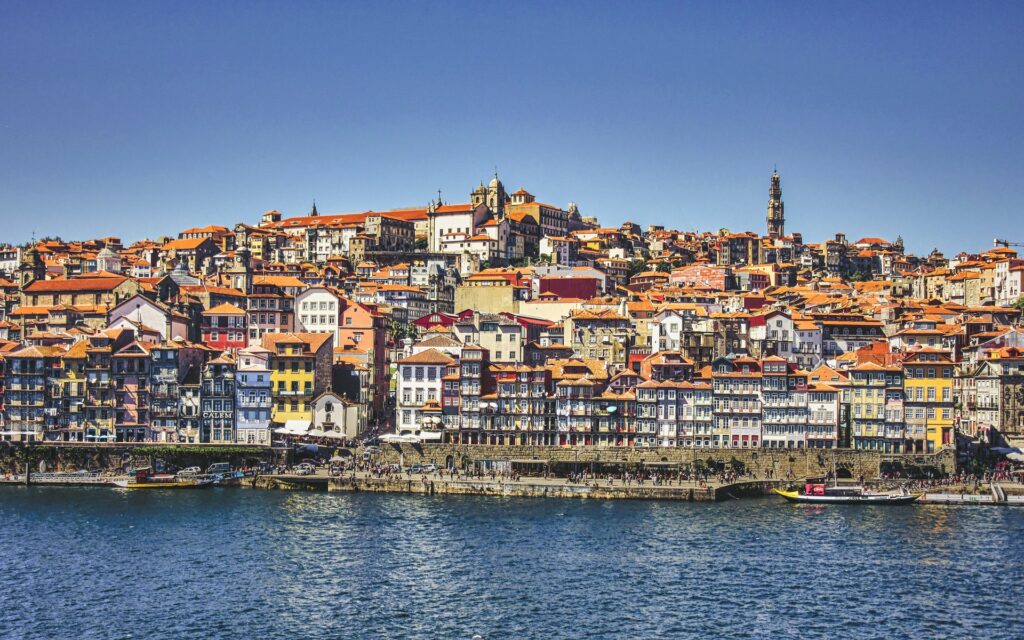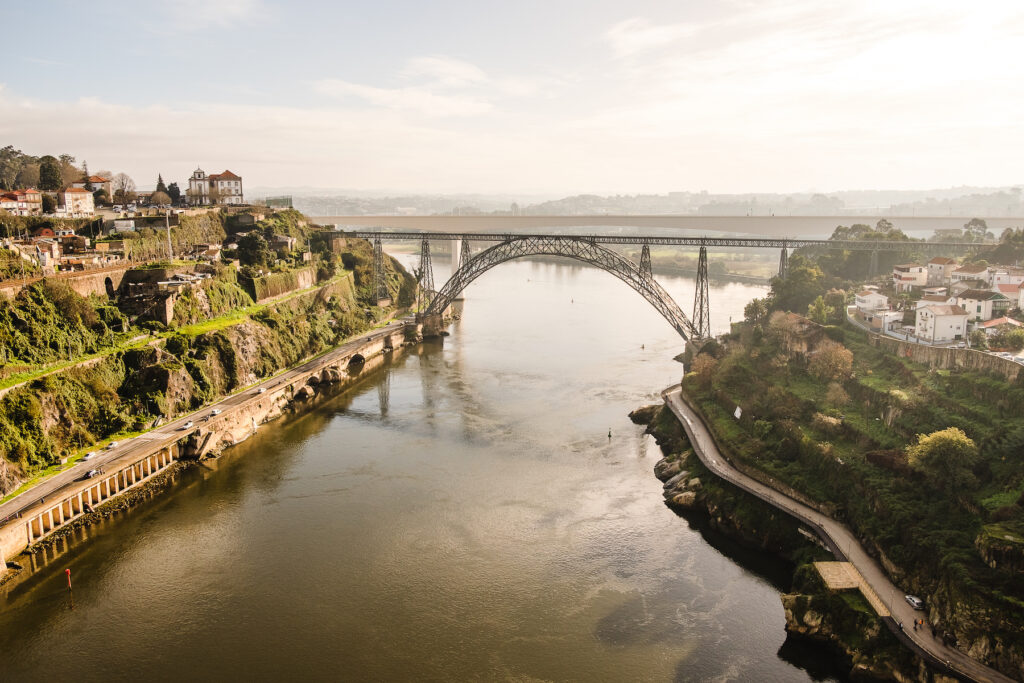Are you considering retiring in Porto, Portugal? With its stunning architecture, rich culture, and beautiful coastline, it’s no surprise that Porto is becoming an increasingly popular destination for retirees. Whether you’re looking to relax on the beach, explore historic sites, or indulge in delicious cuisine, Porto has something to offer everyone.
One of the biggest draws of retiring in Porto is the affordable cost of living. Compared to many other European cities, Porto is relatively inexpensive, making it an attractive option for those on a fixed income. Additionally, Portugal offers a special tax regime for foreign retirees, which can significantly reduce your tax burden.
But retiring in Porto isn’t just about saving money. The city is also known for its vibrant cultural scene, with numerous museums, art galleries, and music venues. Whether you’re interested in classical music or contemporary art, you’re sure to find something to suit your tastes. And with its mild climate, you can enjoy outdoor activities like golf, hiking, and cycling year-round.
Why Choose Porto for Retirement
If you are considering retiring abroad, Porto, Portugal, is a great option to consider. Here are a few reasons why:
Climate and Lifestyle
Porto has a Mediterranean climate, which means that it enjoys warm, dry summers and mild, rainy winters. This makes it an ideal location for retirees who want to enjoy a comfortable climate all year round. In addition, Porto offers a peaceful pace of life, with all the amenities you need to enjoy your retirement. The city is known for its rich history, stunning architecture, and vibrant culture, which means that there is always something to do and see.
Cost of Living Comparison
One of the main reasons why Porto is an attractive option for retirees is its cost of living. According to Numbeo, the cost of living in Porto is considerably lower than in Lisbon. This means that your retirement savings will go further in Porto, and you will be able to enjoy a higher standard of living for less. The cost of housing, food, and transportation is all lower in Porto than in Lisbon, which makes it an excellent choice for retirees who want to stretch their retirement dollars.
Overall, Porto is a friendly and welcoming city that offers a high quality of life at an affordable price. If you are considering retiring abroad, Porto is definitely worth considering.
Legal Requirements for Retiring in Porto
If you’re considering retiring in Porto, Portugal, there are a few legal requirements you should be aware of. This section will cover the visa and residency permit requirements as well as taxation for retirees.
Visa and Residency Permits
As a retiree, you will need a visa or residency permit to live in Porto. Citizens from the UK can apply for a residence permit until 1 January 2021, in accordance with the legislation established for EU citizens. After this date, UK citizens will need to follow the same process as non-EU citizens.
To obtain a residency permit, you must present a valid identification document and proof that you have financial means of subsistence for yourself and your family. Retirees typically apply for a residence visa for longer stays, which may require proof of income, health insurance, and a criminal record check.
Portugal offers a range of residency options for retirees, including the popular Golden Visa program. This program allows retirees to obtain residency by investing in Portuguese real estate and provides access to the Schengen Area.
Taxation for Retirees
The Non-Habitual Resident (NHR) tax regime in Portugal provides potential tax benefits for retirees. Under this regime, you may be eligible for a flat tax rate of 20% on your income from Portuguese sources for a period of 10 years.
It’s important to note that you may still be subject to taxes in your home country, depending on the tax laws there. It’s recommended that you consult with a tax professional to understand your tax obligations in both Portugal and your home country.
In conclusion, retiring in Porto, Portugal requires obtaining a residency permit and understanding the taxation laws. However, with the Golden Visa program and the NHR tax regime, there are potential benefits for retirees who choose to make Porto their home.
Finding the Perfect Home
When it comes to retiring in Porto, finding the perfect home is an important part of the process. Here’s what you need to know about the real estate market and renting versus buying.
Real Estate Market Overview
Porto’s real estate market has been booming in recent years, with property prices steadily increasing. However, it is still considerably more affordable than Lisbon, making it an attractive option for retirees looking to make the most of their savings.
The most popular neighborhoods among retirees include Foz do Douro, Boavista, and Cedofeita. These areas offer a mix of traditional and modern architecture, as well as easy access to public transportation, shops, and restaurants.
If you’re looking for a more affordable option, you may want to consider neighborhoods such as Bonfim, Campanhã, and Paranhos. These areas are further away from the city center but offer more space and lower prices.
Renting vs. Buying
Deciding whether to rent or buy a home in Porto depends on your personal preferences and financial situation. Renting is a good option if you’re not sure how long you’ll be staying in the city or if you prefer not to be tied down to a mortgage. It’s also a good way to get a feel for different neighborhoods before committing to a more permanent home.
On the other hand, buying a home can be a good investment if you plan on staying in Porto long-term. It also gives you more control over your living space and allows you to make changes and upgrades as you see fit.
No matter which option you choose, it’s important to work with a reputable real estate agent who can help you navigate the local market and find a home that meets your needs and budget.
Healthcare and Services
Healthcare System
Portugal has a public healthcare system that is accessible to all residents, including retirees. The National Health Service (SNS) provides free or low-cost healthcare services to all legal residents of the country. The SNS includes hospitals, clinics, and health centers that provide a wide range of medical services, from primary care to specialized treatments.
If you are a retiree living in Porto, you can access the SNS by registering with a local health center. Once registered, you will be assigned a general practitioner who will provide you with primary care services and refer you to specialists if needed. The SNS also covers a range of prescription medications, which can be obtained at pharmacies throughout the city.
In addition to the public healthcare system, Porto also has a number of private hospitals and clinics that provide high-quality medical care. Private healthcare services are generally more expensive than public services, but they offer shorter wait times and a wider range of treatments.
Access to Services and Amenities
Porto is a well-developed city that offers a wide range of services and amenities to its residents, including retirees. The city has a modern transportation system that includes buses, trams, and a metro system that connects all parts of the city.
There are also numerous supermarkets, shopping centers, and local markets where you can purchase groceries and other necessities. Porto also has a range of cultural and recreational activities, including museums, theaters, and parks, that are accessible to all residents.
For retirees, Porto offers a number of services and amenities that cater specifically to their needs. These include retirement communities, assisted living facilities, and home healthcare services. There are also a number of social clubs and organizations that retirees can join to meet new people and participate in activities.
Overall, Porto is a city that provides retirees with access to high-quality healthcare services and a wide range of services and amenities that can help them enjoy a comfortable and fulfilling retirement.
Integrating into the Community
Moving to a new country can be daunting, but integrating into the community can make the transition smoother. Porto is a friendly city with a welcoming community, and there are many ways to get involved and make new friends.
Language and Culture
Portuguese is the official language of Portugal, and while many locals speak English, learning some basic Portuguese phrases can be helpful in everyday life. It can also show respect for the local culture and make it easier to connect with locals.
Portuguese culture is rich and diverse, and there are many festivals and events throughout the year. Attending these events can be a great way to learn more about the culture and meet new people.
Expat Communities and Social Life
Porto has a thriving expat community, and there are many groups and organizations that cater to expats. Joining these groups can be a great way to meet like-minded people and make new friends.
There are also many social activities and events in Porto, from wine tastings to cultural tours. These events can be a fun way to explore the city and meet new people.
Overall, integrating into the community in Porto is an important part of making the most of your retirement in Portugal. Whether it’s learning the language or joining an expat group, there are many ways to get involved and make new friends in this friendly city.
Frequently Asked Questions
What are the pros and cons of retiring in Porto, Portugal?
Porto, Portugal is a beautiful city with a rich history and culture. Retiring in Porto can be a great choice for many people. Some of the pros of retiring in Porto include the affordable cost of living, the mild climate, the delicious food and wine, and the friendly locals. However, some of the cons of retiring in Porto include the language barrier for non-Portuguese speakers and the hilly terrain that can make it difficult for some retirees to get around.
How much should I budget for a comfortable retirement in Porto, Portugal?
The cost of living in Porto is generally lower than in many other European cities, making it an attractive option for retirees. However, the cost of living will vary depending on your lifestyle and needs. On average, a couple can live comfortably in Porto on a budget of around €1,500 to €2,000 per month.
What are the tax implications for US citizens retiring in Porto, Portugal?
US citizens who retire in Porto, Portugal may be subject to taxes in both Portugal and the United States. It is important to consult with a tax professional to understand your specific tax situation and to ensure that you are complying with all relevant tax laws.
What is the process for a US citizen to retire in Porto, Portugal?
US citizens who wish to retire in Porto, Portugal will need to obtain a residency permit. The process for obtaining a residency permit can be complex and time-consuming. It is recommended that you work with an immigration lawyer or other professional to navigate the process.
How does the cost of living in Porto compare to other popular retirement destinations?
Compared to other popular retirement destinations in Europe, the cost of living in Porto is generally lower. For example, the cost of living in Porto is significantly lower than in cities like Paris or London. However, the cost of living in Porto may be higher than in some other retirement destinations in Portugal.
What are the best neighborhoods in Porto for retirees?
Porto has many great neighborhoods that are popular with retirees. Some of the best neighborhoods for retirees include Foz do Douro, Cedofeita, and Boavista. These neighborhoods offer a mix of amenities, including restaurants, shops, and cultural attractions, as well as easy access to public transportation.


